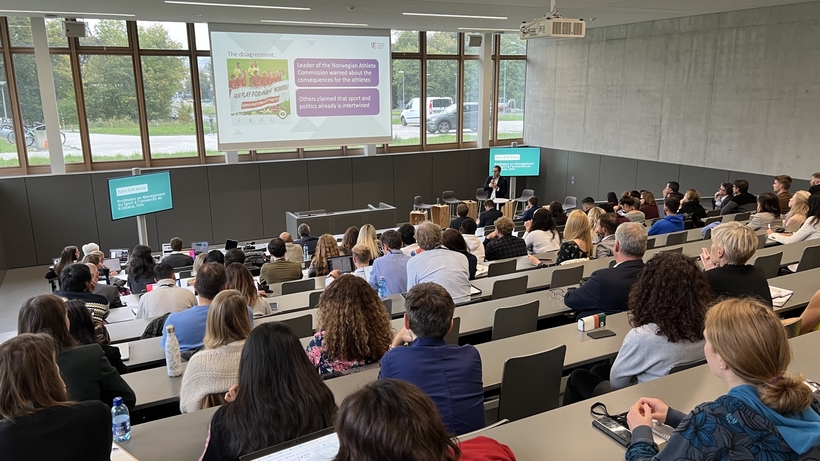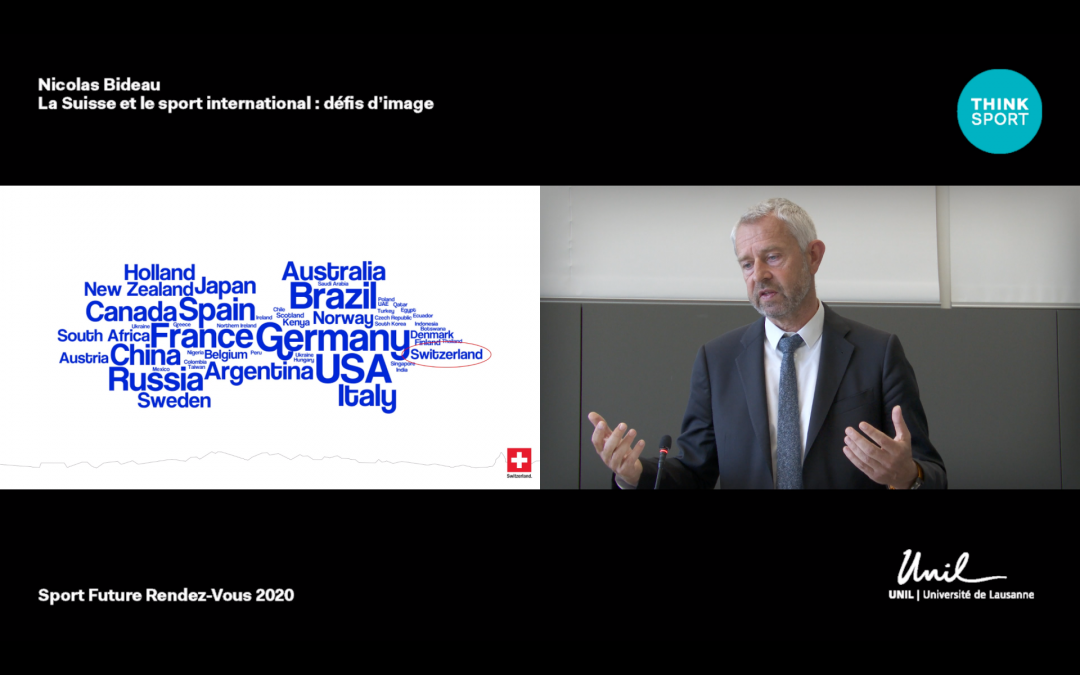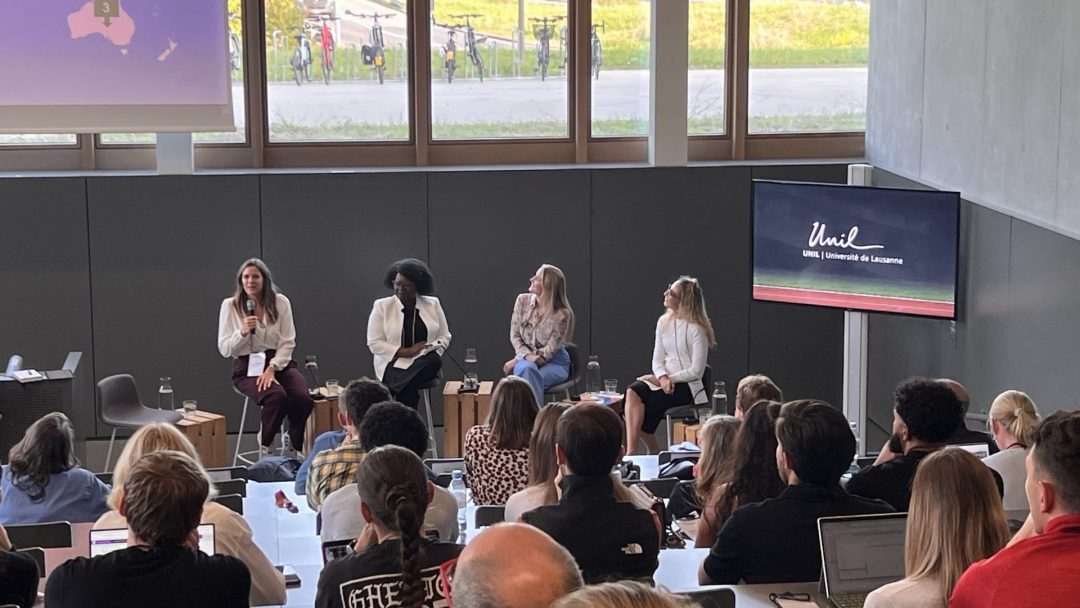Excellent speakers from different disciplines, an engaged audience and a collaborative spirit were the key ingredients for an informed debate on the important topic of “Athletes and Human Rights” at last week’s Sport Future Rendez-Vous. Organised jointly by ThinkSport and the University of Lausanne (UNIL), the annual event took place at the UNIL campus on 29 September.
Véronique Boillet, Professor of Law at UNIL, kicked off the expert presentations. She explained the obligation of states and sport organisations to respect, fulfil and protect human rights and outlined the legal instruments available to athletes to make use of their human rights. Drawing on some specific cases, she went on to clarify the roles, responsibilities, and limits of the Court of Arbitration of Sport (CAS), Federal Courts and the European Court of Human Rights respectively; and showcased how arbitration procedures mixed between private bodies and state judicial bodies can become complex. Véronique Boillet (as well as subsequent speakers) also referred the International Olympic Committee (IOC)’s Strategic Framework on Human Rights which was published earlier in the month.
Guido Battaglia, Head of Policy and Outreach at the Centre for Sport and Human Rights focused his presentation on how sport actors can work together to address pressing human rights questions in sport. The Geneva-based Centre was created in 2018 to advance a world of sport that fully respects and promotes human rights by generating awareness, building capacity and delivering impact. He presented pragmatic tools developed by the Centre and highlighted that many sport organisations have embraced the UN Guiding Principles on Business & Human Rights (UNGPs), issued in 2011 to help companies and governments understand and address their human rights risks and impacts.
Florian Yelin, Policy and Research Coordinator at the World Players Association in Nyon, which represents more than 85 000 professional players through over 100 players associations in 65+ countries, was the next one to take the floor. He explained the views of his association on how to legitimise global sports law by embedding internationally recognised human rights, applying the principle of shared authority (“those bound help make it”), and providing protection for those bound or affected (substantive law and access to remedy). The freedom of association, including the right to set up and join trade unions, forms part of internationally recognised human rights and, according to Florian Yelin, plays a crucial role in protecting, empowering and representing athletes.
Hans Erik Næss, Professor in Sport Management from Kristiana University in Oslo, shared his perspective as a sociologist on “Athletes and Human Rights” and explained details of an interesting case study from his home country. In 2021, the Norwegian Olympic and Paralympic Committee and Confederation of Sports (NIF) wanted to increase its commitments on human rights and sought advice from experts on how to translate the UNGPs into daily operations. This exercise brought to light different opinions of athletes on the need and risks of speaking out on human rights issues. Hans Erik Næss explained that for athletes, a lot can be at stake when taking a public stance on sensitive matters, such as pressure from their governments to take a certain stance, financial threats from sponsors or the risk of losing fans.
The room was almost full and in the subsequent open discussion, the knowledgeable audience put forward dozens of questions which were addressed by the speakers.
Anna Hellman, Director of ThinkSport, said after the event: “This is an excellent example of a constructive exchange, aimed at finding together solutions on both a complex and sensitive topic.”
All four speakers agreed that the universality of human rights remains key in the international sporting context; that doing nothing is no option; and that there is a positive trend towards proactivity and openness for cross-sector collaboration by international sport governing bodies.


